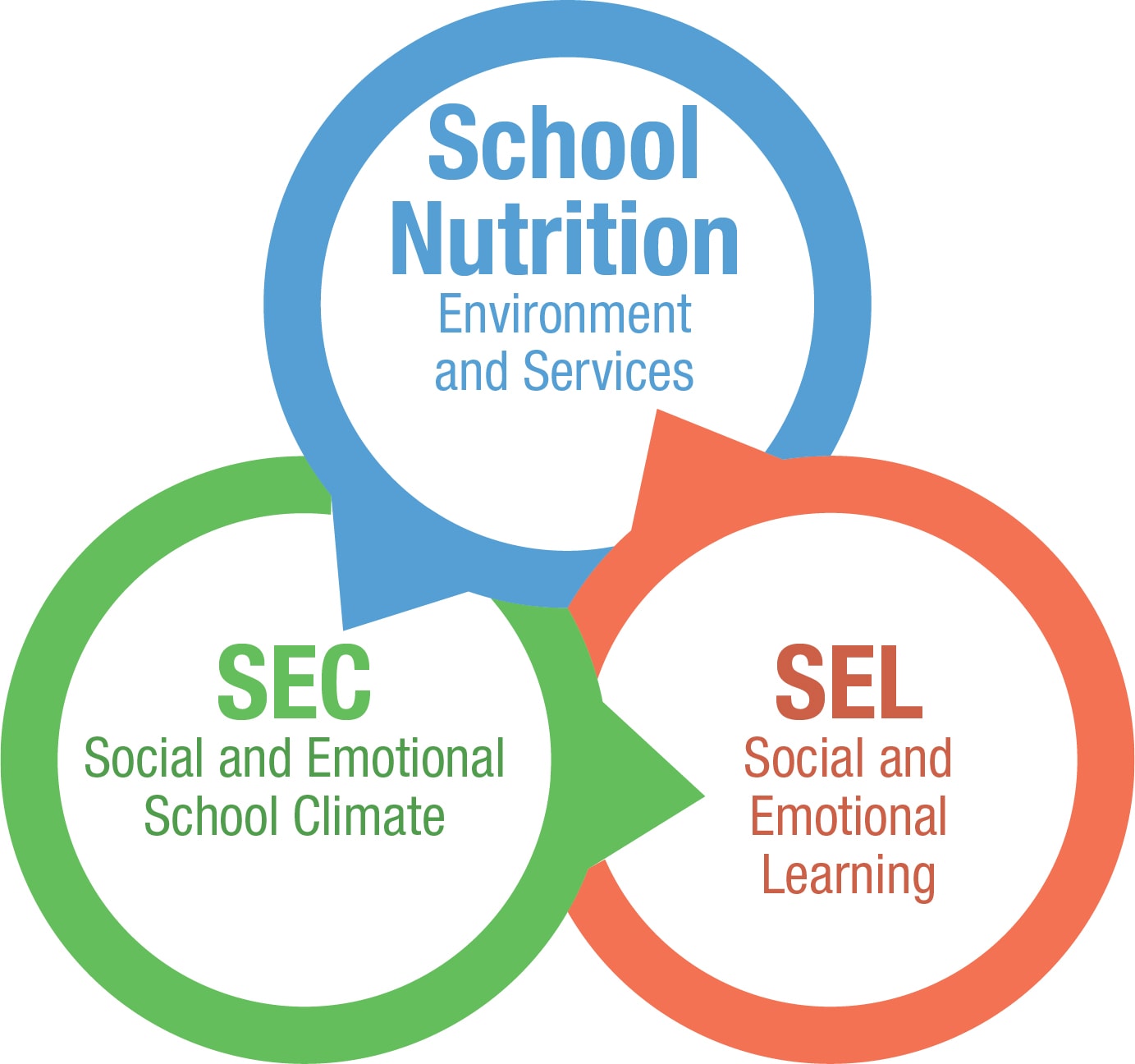School Nutrition and Healthy and Supportive School Environments

The social and emotional climate (SEC) in school includes experiences students have with peers and adults that can affect their emotional well-being, development, and behavior.
School leaders can create a positive SEC to help make teaching and learning effective. This approach will also help students improve their social and emotional learning (SEL), which includes:
- Managing emotions.
- Setting and achieving positive goals.
- Feeling and showing empathy for others.
- Establishing and maintaining positive relationships.
- Making responsible decisions.
School nutrition policies and practices1,2 can affect the overall SEC and reinforce SEL core competencies.3,4 For example:
- Providing adequate seat time for meals gives students the opportunity to socialize and connect with their peers.
- Providing nutrition education can teach students how to recognize when their emotions are influencing their eating habits and how to listen to internal cues of feeling hungry and full.5
- Encouraging teachers to eat meals with students can help reinforce healthy eating behaviors and strengthen relationships with students.6
- Promoting use of share tables can encourage responsible decision making, help reduce food waste,7 and make food items available to other children who may want another serving during or after meal service.
- Communicating to parents, teachers, and staff about how to access nutritious school meals can show the benefits of these programs and how they can promote equity.2
- Keeping private which students receive free or reduced-price meals or have meal debt can help remove stigma. It can also help create a safe school environment that discourages bullying or embarrassment for students.
- Providing free school meals for all students improves student perceptions of school climate, including bullying, fighting, respect, and safety.8
Examples of actions to support this effort include:
- Assessing school nutrition policies and practices to make sure they align with SEC principles and SEL core competencies.
- Adding SEC and SEL to existing policies (such as local school wellness policies)9 or school improvement plans.
- Using instructional practices and nutrition education content that align with SEL core competencies.
- Communicating with parents about the connections between school nutrition, SEC, and SEL, including benefits for students’ health and academic success.
